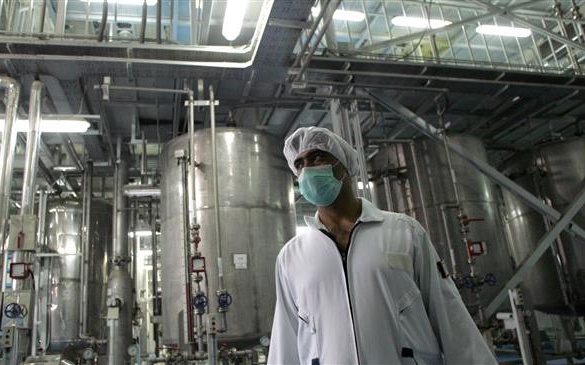Seeking leverage over the 2015 nuclear deal and possible talks over US re-entry, Iran is threatening to block some inspections of its facilities by the International Atomic Energy Agency.
Government spokesman Ali Rabiei said Tehran will begin restricting short-notice inspections from February 19.
Pointing to Parliamentary pressure for a harder Iranian line, Rabaiei told a televised news conference, “Our law is very clear regarding this issue.”
He added, “But it does not mean Iran will stop other inspections” by the IAEA.
Under the 2015 deal between Iran and the 5+1 Powers (US, UK, France, Germany, China, and Russia), the IAEA has wide-ranging access to gather information on Iran’s nuclear activities, including the right to short-notice inspections.
But in December, the Iranian Majlis passed a law requiring the Rouhani Government to suspend provisions in the deal if US sanctions were not lifted within two months.
Rabaei warned two weeks ago that Iran would restrict IAEA access by withdrawing from the Additional Protocol of the Nuclear Non-Proliferation Treaty, having joined it alongside the deal, if US sanctions are not removed.
Earlier this month, Iran returned to its pre-2015 production of 20% uranium, which potentially can be further enriched to a military grade of more than 90%.
The Government has also installed advanced uranium centrifuges and informed the IAEA that it is expanding activities at underground facilities.
UPDATED: Iran to IAEA — We Are Resuming Enrichment of 20% Uranium
In Moscow on Tuesday, Foreign Minister Mohammad Javad Zarif signalled to the Biden Administration that Iran will step back from its inspections threat, if there is a move to lift comprehensive sanctions imposed by the Trump Administration in November 2018.
“If favorable actions are taken before that time….Iran will not interfere with the admission of inspectors under the additional protocol,” Zarif said.
Why on earth should Iran—a country that stood firm & defeated 4 years of a brutal US economic terrorism imposed in violation of JCPOA & UNSC Resolution—show goodwill gesture first?
It was the US that broke the deal—for no reason. It must remedy its wrong; then Iran will respond.
— Javad Zarif (@JZarif) January 26, 2021
The Biden Administration has indicated that it could reverse Donald Trump’s withdrawal of the US from the deal in May 2018. However, both the US and the three European parties — UK, France, and Germany — want revisions to cover Iran’s ballistic missiles program and to extend the terminal date of provisions.
The Supreme Leader and President Hassan Rouhani have rejected any renegotiation.
The office of French President Emmanuel Macron repeated on Tuesday, “If they are serious about negotiations and if they want to obtain a re-engagement of all the stakeholders in the JCPOA [Joint Comprehensive Plan of Action], they firstly need to refrain from further provocations and secondly respect what they no longer respect, that’s to say their obligations.”
Meanwhile, President Rouhani reiterated his line:
US, Iran, and the Nuclear Deal: The “You Go First” Dilemma
#Iran's president: You (Europe & US) return to your obligations [under the #JCPOA], we will return to all our obligations the following hour… The world unanimously calls on the US to return to its commitments. pic.twitter.com/m7dCtegTXu
— Abas Aslani (@AbasAslani) January 27, 2021

